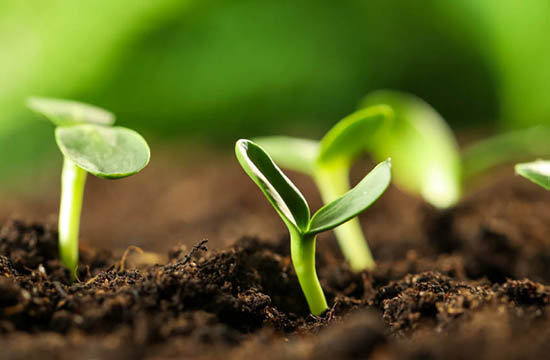Understanding Moisture Retention in Soil
Moisture retention refers to the soil’s ability to hold water and make it available to plant roots over time. This process is critical for supporting healthy plant growth, reducing irrigation needs, and maintaining consistent nutrient uptake. Without proper moisture retention, plants are more susceptible to stress, especially during dry periods.
Factors That Affect Moisture Retention
Several key factors determine how well soil holds onto water, including:
- Soil Texture: Sandy soils drain quickly and hold little water, while clay soils retain water longer but may become compacted. Loamy soils offer a good balance of water retention and drainage.
- Climate and Weather Patterns: Hot, dry climates or regions with inconsistent rainfall can increase evaporation and reduce overall moisture levels in the soil.
- Plant Type and Root Structure: Plants with deep or fibrous root systems can access and hold moisture more efficiently than shallow-rooted species.
Common Challenges in Moisture Retention
Compacted soil can limit water infiltration and root growth, while high evaporation rates in hot or windy conditions reduce available moisture. Nutrient loss often follows poor moisture retention, further stressing plants. To combat these issues, integrated water management practices like mulching, soil amendment, and precision irrigation can help improve moisture balance and promote long-term soil health.
Soil Additives for Moisture Retention
Moisture-retaining soil additives are vital for enhancing crop health and productivity, especially in regions where moisture retention in soil is a concern. Additives improve the water-holding capacity of the soil, ensuring plants receive sufficient moisture even in dry regions or during droughts. Soil additives contribute to optimal plant growth by promoting healthy root development.
There are various types of moisture-retaining soil additives available that can significantly improve moisture retention in soil. Organic matter, such as compost or well-rotted manure, enhances soil structure and boosts the soil’s ability to retain water. Hydrogels, which are water-absorbing polymers, reduce irrigation frequency by holding water in the soil, helping to minimize water loss. Mulching, using either organic or inorganic materials on the soil surface, regulates soil temperature, prevents weed growth, and improves both water absorption and long-term moisture retention in the soil.
Learn more about the different types of moisture-retaining soil additives and how they contribute to overall crop health below.
Applying Water Retaining Soil Additives
When applying moisture-retaining soil additives, there are several methods to consider. The most common water retention approach is to mix the additives thoroughly into the soil during the preparation stage before planting. This ensures that the additives are evenly distributed throughout the soil, optimizing their ability to retain water and enhance soil moisture levels. Another effective method is top-dressing, where the additives are applied as a layer on the soil surface around established plants, helping to conserve moisture, reduce evaporation, and promote better water retention.
Proper soil management practices are essential for protecting both the soil and the effectiveness of the moisture-retaining additives. For example, mulching creates a protective barrier that reduces moisture evaporation and prevents weed growth, further improving water retention in the soil. Additionally, regularly monitoring soil moisture levels is key to determining when additional watering or reapplication of additives is needed to maintain optimal moisture retention.
At Verdesian, we offer a range of innovative soil water retention products to incorporate into your agricultural practices. We formulate each product to enhance the soil’s water-holding capacity, promoting healthier plant growth and maximizing water conservation efforts.
Types of Soil Additives for Water Retention
Soil additives, also known as soil amendments, are substances added to the soil to improve its properties and enhance water retention. There are two main types of soil additives: organic and inorganic.
Organic Soil Amendments for Moisture Retention
Organic soil amendments like compost, manure, and peat moss help improve soil structure and boost its ability to retain moisture. Compost and manure enrich the soil with organic matter that enhances water absorption and reduces runoff, and peat moss excels at holding moisture for longer periods, making it especially useful in dry or sandy soils. They help maintain consistent moisture levels around plant roots by increasing the soil’s capacity to hold water.
Inorganic Soil Amendments for Moisture Retention
Inorganic amendments such as vermiculite, perlite, and fly ash are also effective for improving soil texture and moisture dynamics. Vermiculite retains significant amounts of water, which helps keep soil moist between watering cycles. Perlite enhances drainage and aeration, preventing excess moisture buildup while still supporting moisture retention. Fly ash improves soil structure and water-holding ability, making it a useful tool for overall soil moisture management.
How Soil Additives Work to Retain Water
Soil additives, or soil amendments, are essential for improving moisture retention, which is critical for plant growth and soil health. These additives enhance the soil’s physical properties, improving its structure and ability to hold water. By increasing moisture retention, soil amendments ensure that plants have access to water for longer periods, even in dry conditions or droughts.
Organic amendments like compost, manure, and peat moss are particularly effective for moisture retention. These materials absorb water like sponges and slowly release it to plant roots over time, maintaining consistent moisture levels. Organic amendments also improve soil structure, helping to retain moisture and prevent rapid evaporation, which is essential for plants in drier conditions.
Soil additives improve water retention by optimizing the soil’s structure and physical attributes. Additives balance the water-holding capacity and drainage, preventing waterlogging and compacting. This allows plants to access moisture for longer durations, even in dry conditions or droughts.
Benefits of Using Soil Additives for Water Retention
Using soil additives for moisture retention offers several significant benefits, contributing to more efficient agricultural practices and healthier plant growth. Let’s explore some of the key advantages:
Reduced Water Usage and Costs With Moisture Retention
One of the primary benefits of soil additives for moisture retention is their ability to reduce water usage. Soil additives improve the water-holding capacity of the soil, which helps retain moisture for extended periods and minimizes the need for frequent irrigation.
In regions with limited water resources or during drought conditions, using soil additives becomes even more critical in conserving water and ensuring its efficient utilization.
Improved Plant Growth and Health With Retained Water
Soil additives play a crucial role in enhancing plant growth and overall health by improving moisture retention in the soil. These additives provide a consistent and adequate water supply to plant roots, ensuring steady access to moisture.
With better moisture retention, plants can develop strong and extensive root systems, which are vital for nutrient absorption. This improved water availability helps plants maintain optimal hydration levels, leading to healthier foliage, increased resilience against stressors, and enhanced overall productivity.
Prevention of Soil Erosion and Runoff
Soil erosion and runoff can have detrimental effects on agricultural lands. However, soil additives designed for moisture retention can help mitigate these issues. By improving the soil’s ability to hold water, these additives reduce the likelihood of excessive water runoff.
The enhanced structure and moisture retention properties help bind soil particles together, minimizing soil erosion caused by wind or heavy rainfall. This helps maintain the integrity of the topsoil and preserves valuable nutrients necessary for plant growth.
Final Thoughts on Moisture Retaining Soil Additives
Using soil additives for water retention offers numerous benefits. From reducing water usage and costs to improving plant growth and health and preventing soil erosion and runoff, soil additives provide valuable advantages to farmers.
Incorporating soil additives into cultivation practices optimizes water management, promotes sustainable agricultural systems, and fosters healthier and more resilient plant ecosystems. By harnessing the power of moisture-retaining soil additives, farmers can improve water efficiency, conserve resources, and achieve long-term agricultural success.


